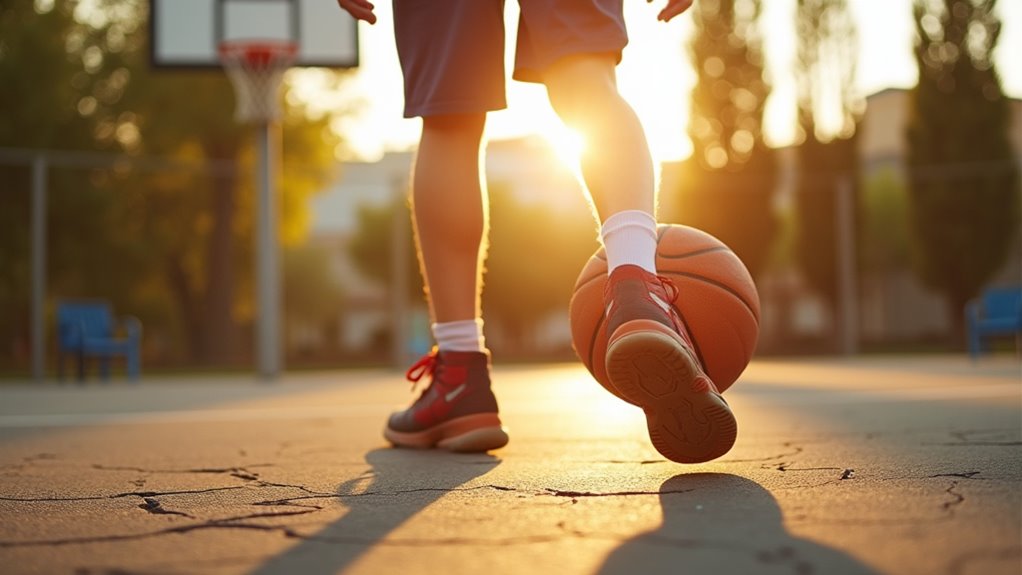
Benefits of Yoga
Gain strength, flexibility, and mental clarity through yoga—discover how this ancient practice transforms your body and mind beyond expectations.
Learning basketball is so much more than grabbing a ball and stepping onto a court. It’s a journey that blends physical ability, strategic thinking, and mental discipline. Whether your goal is to play casually with friends, try out for a local team, or simply develop a new fitness hobby, building the right foundation matters. From understanding the rules to practicing fundamental skills, each step shapes how confidently and efficiently you move on the court.

So where should you begin if you want to improve quickly and avoid the common mistakes that slow most beginners down? The key lies in a handful of essential techniques and strategies that create the strongest possible starting point. Once you master these, every other part of the game becomes easier.
Below, you’ll find a complete guide to learning basketball—from basic rules to practice routines, techniques, gear, and goal-setting—designed to help beginners build real skills with confidence.
Before diving into drills or picking up speed on the court, understanding the basic rules of basketball is essential. The game involves two teams competing to score points by shooting the ball through the opponent’s hoop. While the concept is simple, the rules that govern play are what keep the game fair, strategic, and enjoyable.
Understanding these rules builds confidence and helps new players avoid turnovers, allowing them to focus more on technique and strategy instead of worrying about penalties.
Having the proper gear makes a bigger difference than most beginners realize. The right basketball and equipment not only improve performance but also reduce the risk of injuries, making practice safer and more effective.
Basketballs come in different sizes based on age and league:
A properly sized ball helps beginners practice with better control and prevents frustration caused by handling equipment that feels too large or too heavy.
Basketball shoes should offer:
Wearing non-basketball shoes—like running shoes—can increase the risk of sprains because they aren’t designed for lateral movements.
With the right equipment, practice becomes more productive and significantly safer.
Dribbling is the foundation of basketball. Without strong ball-handling skills, moving on the court, avoiding defenders, and setting up plays all become difficult. Mastering effective dribbling begins with proper technique and consistent practice.
Consistent dribbling practice builds coordination, confidence, and control—three things every player needs to navigate real game situations.
Basketball is a team sport, and passing is what keeps the game flowing. Good passing creates scoring opportunities, beats defenders, and strengthens teamwork.
Passing requires timing, awareness of teammates’ positions, and quick decision-making. Beginners should practice with a partner, focusing on accuracy before speed. Over time, passing becomes instinctive, helping players recognize opportunities and execute plays smoothly.
Good shooters aren’t built overnight—they’re shaped by consistent practice and proper mechanics. Shooting is one of the most rewarding skills to develop, but also one of the most technique-driven.
Over time, muscle memory develops, leading to more consistent, confident shooting during games.
Defense wins games as much as offense—sometimes even more. A strong defensive player can disrupt the opponent’s rhythm, force turnovers, and protect the basket.
A good defender doesn’t just react—they predict. They know how to position themselves, stay disciplined, and apply pressure without committing fouls. Mastering defense builds endurance, improves awareness, and makes you a far more valuable teammate.
Basketball demands endurance, speed, power, and agility. Building overall physical fitness is essential for preventing injuries and performing at your best.
The stronger and more conditioned your body is, the easier it becomes to execute basketball techniques effectively.
Even with the best intentions, improvement is impossible without a place to practice. Finding local courts is a key step for beginners who want to practice consistently and get comfortable playing in different environments.
Many cities also offer open-gym times, pickup games, and low-cost facility access. Regular practice on real courts helps players develop spatial awareness and game flow.
Practicing alone builds skill—but playing with others builds experience. Joining a team or local basketball group exposes beginners to structured gameplay, coaching, feedback, and real-time decision-making.
Even community leagues or casual pickup groups can accelerate your improvement dramatically.
Finally, tracking progress is essential for staying motivated and continuing to improve. Without clear goals, it’s easy to become discouraged or inconsistent.
Keeping a simple journal or using a training app helps identify strengths, weaknesses, and milestones worth celebrating.
Learning basketball is an exciting journey that blends physical skills, strategic thinking, and consistent practice. By understanding the rules, choosing the right equipment, and focusing on core fundamentals like dribbling, passing, shooting, and defense, beginners can build a strong and confident foundation. Adding proper conditioning, finding local courts, joining a team, and setting clear goals enhances progress even further. With patience and dedication, anyone can develop the skills needed to enjoy and excel at basketball—both on and off the court.

Gain strength, flexibility, and mental clarity through yoga—discover how this ancient practice transforms your body and mind beyond expectations.

How cardio timing impacts your strength gains and fat loss might surprise you—discover the best order to maximize your workouts today.

Jumpstart your fitness journey with essential tips on how to start running safely and effectively—discover what you need to know before you begin.

Why running boosts both your body and mind in surprising ways—discover benefits that go beyond fitness and transform your life.

Offering more than just muscle growth, resistance training transforms your fitness—but what exactly makes it so effective? Discover the key principles inside.

Only by understanding lean mass can you unlock its crucial role in health and fitness—discover what it truly means for your body’s strength and vitality.